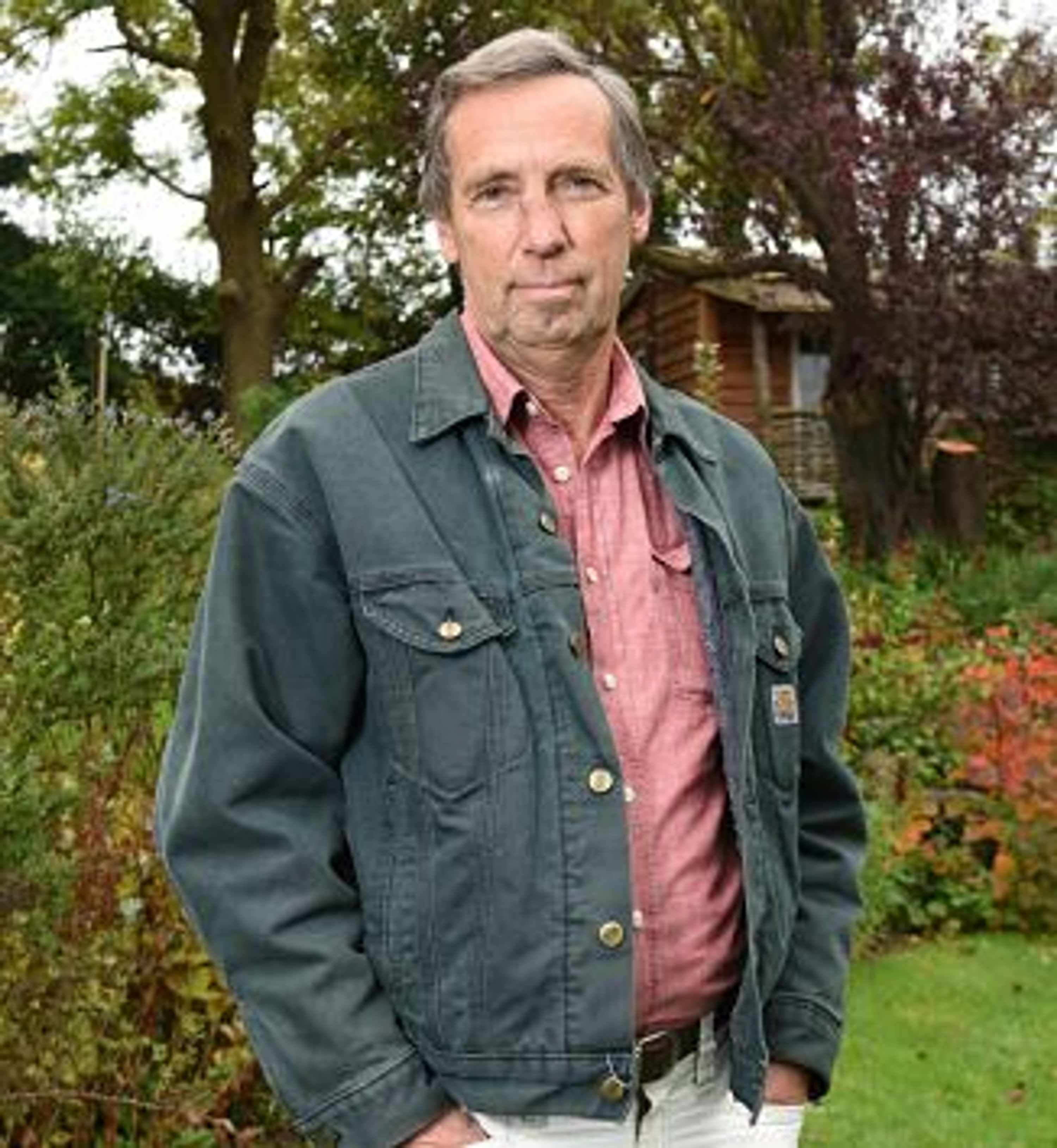Natural Happiness expert Alan Heeks shares the reasons you need super-resilience, and seven keys to finding it
Natural Happiness expert Alan Heeks shares the reasons you need super-resilience, and seven keys to finding it


Natural Happiness expert Alan Heeks shares the reasons you need super-resilience, and seven keys to finding it
Many people find the pressures of daily life keep growing, and it’s hard to handle them. So how can we stay happy in the years ahead, when it’s even bumpier? The answer is to develop the skills of super-resilience.
Alan Heeks is a pioneer in helping people to grow their resilience by learning from Nature. He’s created Hazel Hill Wood, an amazing 70-acre centre near Salisbury, and is offering a workshop there next month called Dare to Imagine: Growing into the Future (13-15 October). T
hese days, resilience is an over-used, sometimes misused word. Alan comments, “the root meaning of resilience is bouncing back. Research shows that happy people have better skills to face challenges creatively, and even grow through them – and these skills can be learned.”
The popularity of mindfulness shows that many people are already working on raising their resilience. Why do we need super-resilience? Alan explains, “most people find life a lot more complex and demanding now than a few years ago, and this won’t change. If you look for an upside in these pressures, it’s that we need to grow in response to them.”
Wisdom Tree, a training team including Alan, have been running programmes at Hazel Hill Wood for people working in front-line services, such as health, schools, local authorities. These services have faced years of rising demands with shrinking resources, and the Dare to Imagine workshop is designed for them as well as individuals.
Here are Alan’s Seven Keys to Super-Resilience.
- Deepen your roots
When trees or plants are stressed, they deepen their roots to find more resources and more stability. This is crucial for people too: it’s worth understanding what gives you nourishment and support in your life and work, and finding more of it.
- Spend more time in nature, less on screens
There’s now a lot of research that shows that the many hours most people spend each day on smartphones and other screens keeps us in a continual state of alert, and makes it hard to relax. The book Your Brain on Nature lays out this research, and also the evidence that time in Nature is the best antidote to screen-world. Time in the green outdoors not only helps us to relax, it renews our energy, and often brings us fresh insights.
- Cultivate face-to-face connections
Many of us now rely heavily on mobile phones and the internet: one of the disruptions in future years is likely to be a breakdown in these services: for example, due to extreme weather or cyber-hacking. Your friendship and support network will be more resilient if you deliberately focus more on personal local contacts.
- Explore a spiritual framework
There’s now a lot of medical evidence that people who have some faith or spiritual beliefs have more general resilience, and better recovery from health problems. You may find, as I do, that it helps to have some power to pray to for help, and to feel that there is a bigger picture beyond the individual.
- Improve your stress processing
If you compare your general stress level now with a few years ago, has it gone up? What’s the future outlook? Part of super-resilience is upgrading your capacity to handle challenges, a bit like renewing a wiring system to handle more voltage. Here are three possibilities:
- Mindfulness: an accessible approach which has helped many people
- Composting: for organic farms and gardens, future growth comes from composting plant and animal waste. You could do the same: imagine recycling negative feelings and anxious thoughts, and using their energy to give you insights and growth. See more at here.
- Deep ecology: a big, unspoken concern for many people is the damage being done to world ecosystems. Deep ecology offers processes to help you face this pain and move forward positively.
- Grow through your ‘failures’
Another feature of the turbulence ahead is likely to be more failures of services, or more major setbacks in our personal lives. So another part of super-resilience is growing our ability to cope and learn from major challenges. Processes like the ones just mentioned can help you to stay more centred in a crisis, and to look for the learning and new skills you can find in them.
- Nourish yourself by helping others
A lot of research on resilience shows that a good way to help yourself feel better is actually to give some help to others. The old principle of ‘treat others as you would like to be treated’ will be even more relevant in the bumpy times ahead.  Alan Heeks and Jane Sanders are co-leading a weekend workshop at Hazel Hill Wood on October 13-15, titled Dare to Imagine: Growing into the Future _– exploring super-resilience with Nature’s help. Author of ‘The Natural Advantage: renewing yourself’ and many other books, Alan provides organic growth approaches for people and their work that help to build resilience. Jane has many years’ experience of working with mindfulness, deep ecology and other approaches to wellbeing, and is part of the Wisdom Tree team. For bookings and enquiries see here. _
Alan Heeks and Jane Sanders are co-leading a weekend workshop at Hazel Hill Wood on October 13-15, titled Dare to Imagine: Growing into the Future _– exploring super-resilience with Nature’s help. Author of ‘The Natural Advantage: renewing yourself’ and many other books, Alan provides organic growth approaches for people and their work that help to build resilience. Jane has many years’ experience of working with mindfulness, deep ecology and other approaches to wellbeing, and is part of the Wisdom Tree team. For bookings and enquiries see here. _


